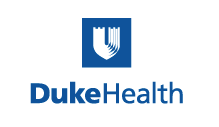
Editor's Note Black and Hispanic patients remain significantly less likely than White patients to receive buprenorphine after an opioid-related health care event, according research published June 26 in JAMA Network Open. Patients with Medicaid or Medicare Advantage also had higher odds of receiving buprenorphine than those with commercial insurance. The…

Editor's Note Low-dose dexmedetomidine effectively stabilizes blood pressure and heart rate during key perioperative stages in gastrointestinal tumor patients with moderate to severe anxiety, according to a July 1 study published in BMC Psychiatry. Researchers enrolled 100 patients undergoing elective laparoscopic gastrointestinal tumor resection. Anxiety levels were measured using…

Editor's Note Hospitals spent nearly $900 million in labor last year managing drug shortages, dedicating over 20 million hours to activities such as sourcing alternatives, updating systems, and communicating with care teams, according to a new Vizient survey published June 17. Conducted in late 2023 and detailed in Vizient’s June…

Editor's Note Bariatric surgery produced five times greater weight loss than GLP-1 medications in a new study of over 51,000 patients with obesity, according to a June 18 article from Fox News. The retrospective study, funded by the NIH and conducted by researchers at NYU Langone Health and NYC Health…

Editor's Note Patients taking GLP-1 receptor agonists (GLP-1 RAs) do not need to discontinue these medications before undergoing anesthesia but should follow extended preoperative fasting protocols to reduce aspiration risk, according to a June 5 article in Medscape. As detailed in the article, this recommendation comes from a new multidisciplinary…

Editor's Note An experimental compound developed at Duke University School of Medicine provides strong pain relief without the side effects or addiction potential of opioids, according to a May 19 announcement from the university. Known as SBI-810, the drug targets a specific receptor in the nervous system and uses a…

Editor's Note The federal 340B Drug Pricing Program may soon shift from the Health Resources and Services Administration (HRSA) to the Centers for Medicare and Medicaid Services (CMS), a move that could bring tighter oversight and lasting consequences for safety-net providers, Modern Healthcare June 2 reports. The proposed transfer, part…

Editor's Note An AI-powered wearable camera has achieved 99.6% accuracy in detecting potentially deadly drug mix-ups, including in the OR, NBC News reported May 25. Developed by Kelly Michaelsen, MD, at UW Medicine, the smart glasses scan medication labels in real time, alerting anesthesia providers to syringe-vial mismatches before drugs…

Editor's Note Pain among patients undergoing in-office gynecologic procedures is widely underestimated and ineffectively treated, particularly for those with trauma histories, chronic pain, or marginalized identities, according to a new Clinical Consensus from the American College of Obstetricians and Gynecologists. The report stresses that individualized, evidence-informed, and trauma-sensitive strategies are…

Editor's Note Blocking stress-induced prolactin may significantly reduce postoperative pain in women and curb the need for opioids, according to a study led by University of Arizona Health Sciences. News-Medical.Net summarized the findings May 20. Published in Proceedings of the National Academy of Sciences, the research suggests a path toward…